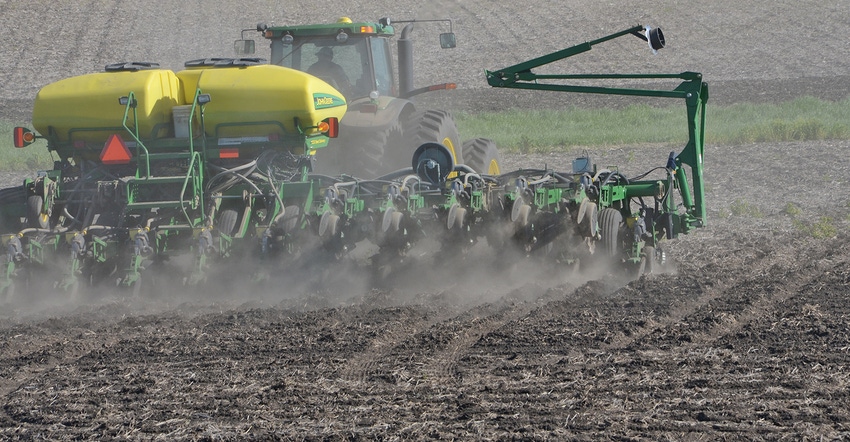April 9, 2019

The seed business has been hard at work on new ways to maximize production, from protecting seed in the ground to nurturing the crop after germination with starters. But what about some nutrition support on the seed at planting, before the crop “reaches out” to that starter?
Compass Minerals Plant Nutrition is taking a different approach to that challenge with a portfolio of products it’s calling Rocket Seeds, and the idea didn’t come from company researchers.
“It started almost two years ago,” says Ryan Bartlett, vice president, innovation and development, Compass Minerals. “We had a dry fertilizer coating product we call Wolf Trax, and a lot of retailers were blending the product with their N-P-K products — so when growers apply N-P-K, they get the micronutrients, too.”
But Bartlett had conversations with farmers in the United States and in Denmark who were attempting to use Wolf Trax as a seed treatment, as a way to get micronutrients to the crop earlier. “With those farmers, we understood what they wanted to accomplish to get the right nutrient package onto the seed for any crop,” he says. “There was Wolf Trax for corn and Wolf Trax for soybeans, but it was not developed for that purpose.”
But that idea drove company researchers to hit the lab to develop a new seed treatment nutritional coating. The idea was to put the product in the planter box, or use it as a dry seed finisher during treatment. Bartlett acknowledged the company isn’t the only one marketing dry nutritionals in the market, but this new approach is unique.
Farmers add talc or graphite — or a mix of both, in fact — at planting. The new Rocket Seeds product would replace that product and still help seed flow through the planter. The company’s product gets key micronutrients like zinc and manganese onto the seed earlier, and also includes a little nitrogen as well.
“In less than optimal conditions, when it’s a little cool or a little wet, this added nutrition for the seed can give it support before it connects with the starter in the furrow,” Bartlett says.
Many forms
The Rocket Seeds lineup includes both liquid and dry product. For corn, wheat and other major row crops, there’s Rocket Seeds PMZ Dry, which can be used in the planter box as a fluency product in place of talc and graphite. Bartlett says the cost is about $1 per acre, versus the 50-cents per acre for traditional talc and graphite, but the Rocket Seeds product adds a nutritional boost for germination.
The Rocket Seeds PMZ Liquid can coat seeds evenly and provide phosphorus, manganese and zinc for a strong start. This can be used as a treatment finishing product.
For soybeans and pulse crops, there’s Rocket Seeds Moly Dry, which includes not only zinc and manganese but also molybdenum. For farmers treating their own soybeans, or for dealers who treat soybeans, this product can be used as a treatment finisher, adding the nutrition to the finished product.
Rocket Seeds Moly Liquid includes nickel, cobalt and molybdenum to increase nodulation and early-season nitrogen uptake.
Bartlett notes that the PMZ dry is being marketed to the corn market but can also be used with sorghum and alfalfa. “We’re not restricted to crop type, but we have the most data on corn, soybeans and wheat so far,” he says.
He adds that the fluency of the dry product has been tested through Precision Planting equipment under high-humidity conditions, and it increases fluency. Bartlett adds that these products have seen wide testing, and through that they’ve seen yield bumps up to 6% for corn and 3% for soybeans.
The unique approach of adding the product to the planter box offers flexibility at planting time. Learn more at compasscrops.com.
About the Author(s)
You May Also Like






